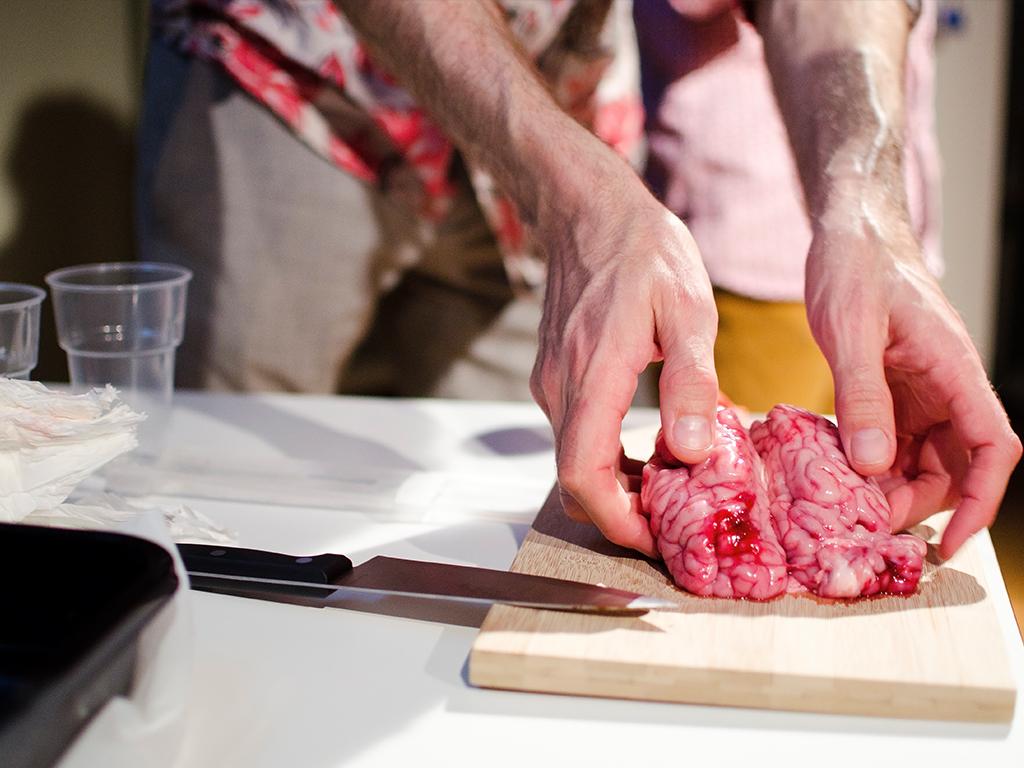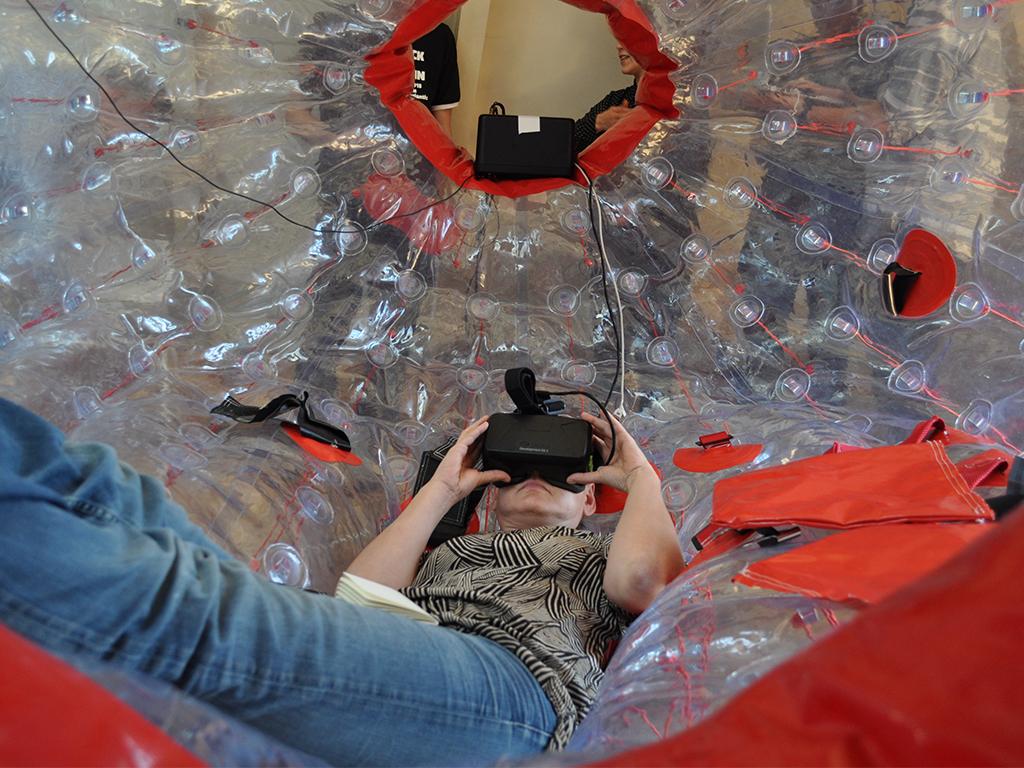In light of ‘Hack the Brain 2015 – Education’ the Waag opened its doors to the public on Friday evening, June 5th, for a brain-stimulating evening. The Waag: where, in the days of Rembrandt, we explored the human body, and where we now explore the human mind. Many a curious soul withstood the hot weather (first tropical day of the year) and the evening thunderstorms—we had a full house! And a full program with no less than eight speakers to share their ideas and expert knowledge on brains and education.
Can we expect a revolution?
Our moderator of the evening was Waag's Frank Kresin, who took part in initiating the first occurrence of Hack the Brain in 2014 (developed from the notion that neuroscience and brain-technologies are slowly creeping up on us).
This year's program leader and our first speaker, Karien Vermeulen, shared some of the neuroscience-inspired products and articles we find around us. She foresees that learning—which is, in essence, a matter for the brain—could soon be hijacked by neuroscience-inspired techniques. She hopes our speakers will teach us what is (or what can be) and what is pure nonsense. If we expect a revolution in our education system, we want to be at the frontier.
Learning is all in the mind
Our first speaker, Nienke van Atteveldt (VU), crammed the whole working mechanisms of the brain and the flexibility of its networks (known as 'neural plasticity') into a 20 minute talk. Interestingly, she ended her talk with a study demonstrating a profoundly positive effect on learning capacity simply by teaching students about neural plasticity—just like she did with us!
Revolution or evolution?
As an ethical reflection, Peter-Paul Verbeek (UT) reminded us that accepting any new technology doesn't lead to either pure improvement or pure impoverishment. It is more likely to lead to a re-evaluation of our standards. Instead of asking what brain-realted technologies will do to education, he asked what they might do to our view and evaluation of education.
Exceptional memory skills
Boris Konrad (of the Donders Institute) kicked off his talk by amazing us with his exceptional memory: he remembered all the names of the (30+) guests he'd welcomed into the Waag at the beginning of the evening. After this demonstration, he proceeded to give us our second brain-related skill of the evening: rapidly teaching us the names of all 14 Presidents of the European Commission by making us remember a funny story involving heavy rainfall, a marriage proposal by Santa, and a bar full of junk (can you recognize all five in this sentence?). He proved his point that names, facts, and orders are easy to remember when you employ a mnemonic strategy.
Boris was followed by his colleague Martin Dresler (also from the Donders Institute) who told us more about the memory tricks they call 'mnemonic strategies.' Dresler studies memory champions and, before Boris was his colleague, he acted as his research-subject. Martin's research shows the brain doesn't need anything special to behold exceptional memory skills. You only need the determination to practice. However, soon even that might not be necessary when Boris and Martin finish their Google-glass mnemonics application.
The Real Deal
In the last performance of the evening Ysbrand van der Werf (VUmc and NIN) and Arnon Grunberg (writer) discussed their experiments on creativity and a reader's perspective. Preliminary results are (1) measuring creativity in the brain will take some creative set-up (or at least more than a single-subject), and (2) Arnon's new book primarily induces disgust, fear, and empathy in the reader—which in turn does not induce any surprise in the writer himself.
After all these inspiring talks about the beauty and complexity of our brains, it was somewhat humbling to see Ysbrand picking up an actual brain and holding it in the palm of his hand. This bovine (cow's) brain is smaller, yet strikingly similar to the human brain. It is the structure in which it all takes place. Even so, it is difficult to describe it any differently than 'mushy,' 'wet,' and 'gooey.' We could, however, add 'nutritious' and 'tasty' since we all got to try deep fried brain-slices served by Joël Broekaert (a culinary columnist) with a delicious sauce of capers and lemon.
How's that for food for thought? I think our speakers might have brought more to the table than we could digest in one go. I heard lively discussions at the bar over a 'brain-wash' (alcoholic beverage) and a 'brain-freeze' (ice lolly). Hackers reminisced about the talks throughout the weekend, and I wouldn't be surprised if this evening formed a lasting memory in every brain present (excluding those from bovine origin).
All photo's of the brain-stimulting evening can be found here.
By our visiting-neuroscientist Wobbie van den Hurk.

